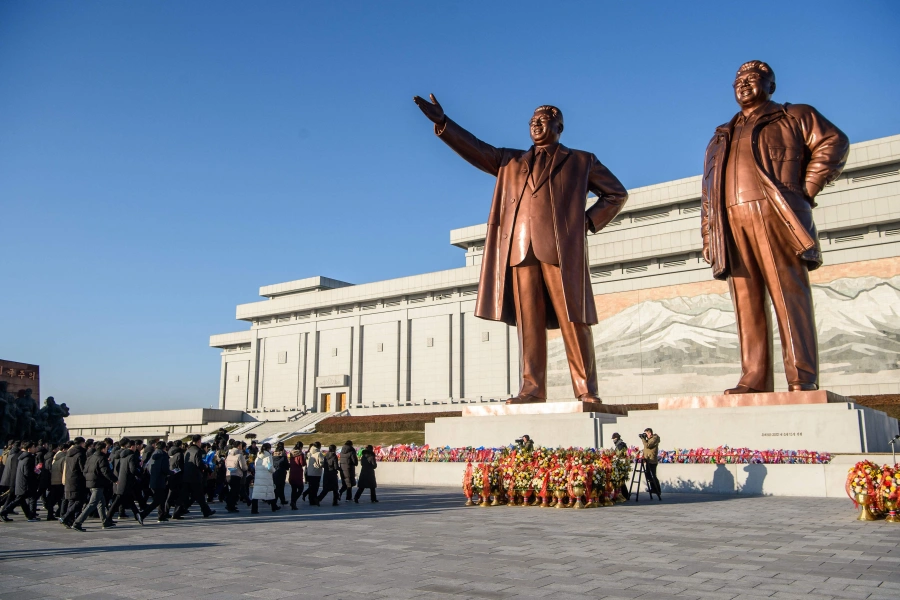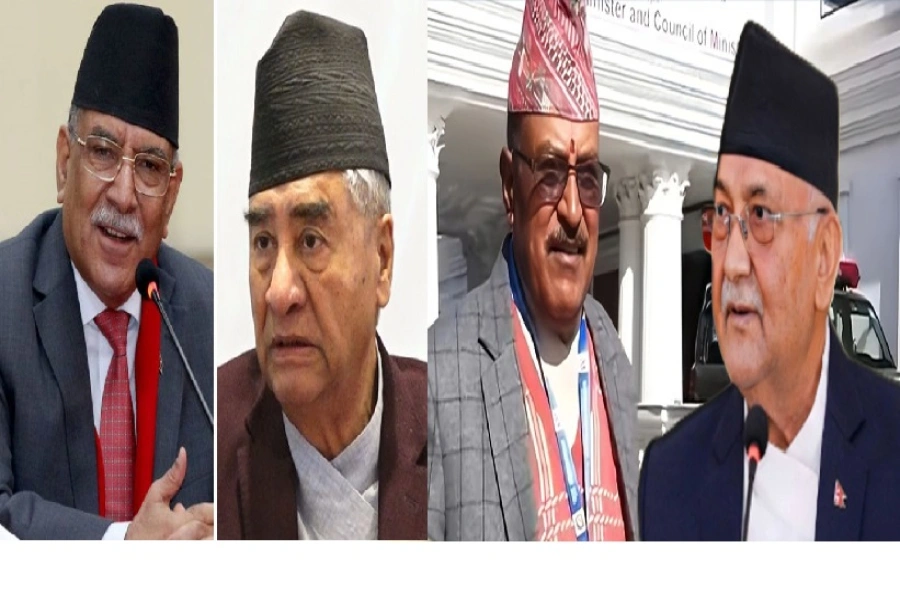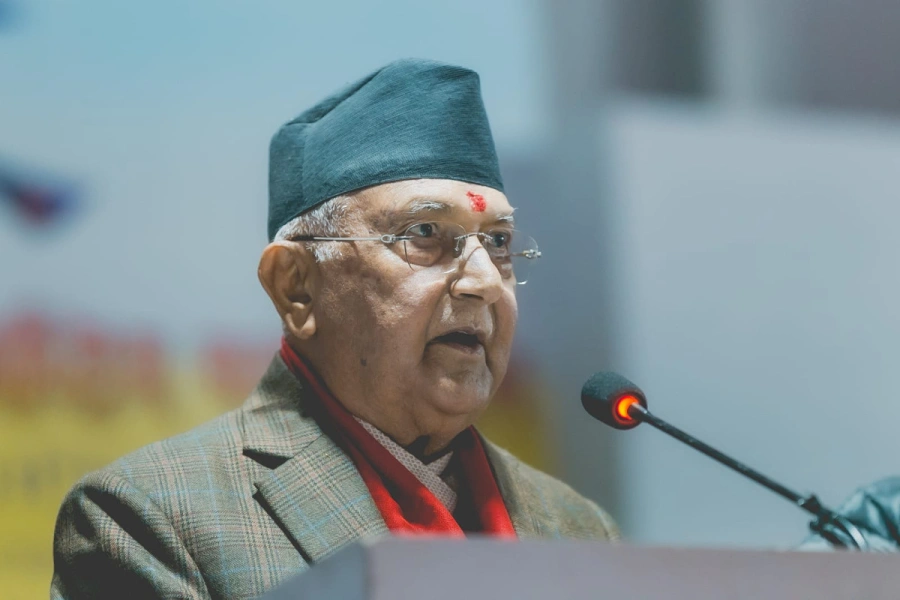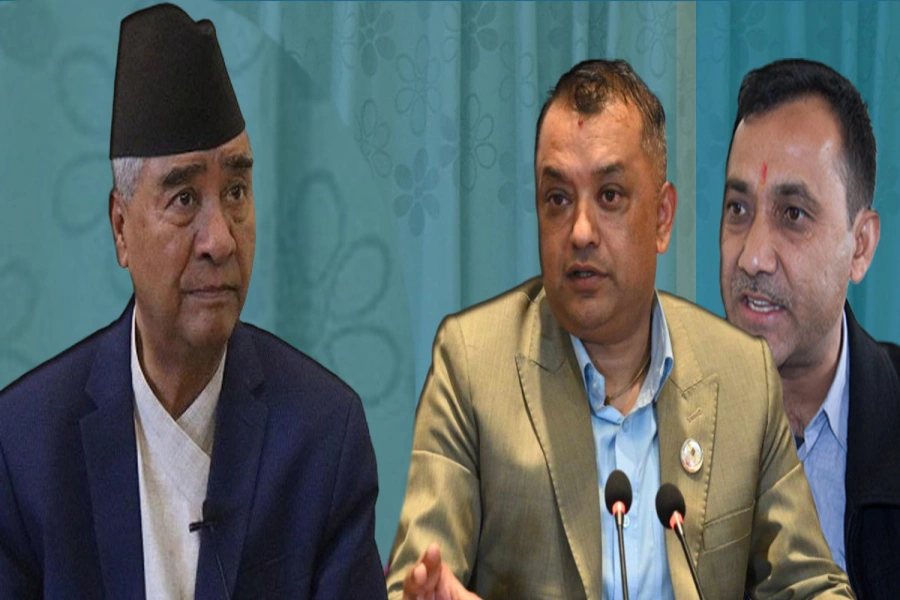The onus is on countries like Nepal which share borders with both India and China to step up efforts to deescalate.
Two days after the sovereign parliament rejected the government-sponsored constitution amendment proposal, Prime Minister Sher Bahadur Deuba is embarking on a five-day visit to India. He is leaving behind a huge population in Nepal’s flatlands, who have lost their land due largely to the Koshi barrage and many other illegal structures that the southern neighbor has built. India built them not only to protect its territories from floods but also to irrigate large swathes of its lands in Bihar and Uttar Pradesh by inundating Nepali territories.
These barrages, high-elevation roads and embankments, built in blatant violation of international laws, are not only designed to provide Indian populations with drinking water, off-season farming opportunities and to boost their fisheries. In fact, they are part of India’s river-linking project that aims to transfer waters originating mainly from Nepal to its ‘water-deficit areas’ by building and operating a chain dams along Nepal’s border, by inundating Nepal’s flatlands.
Thanks to this design and our political leadership’s myopic vision, Nepal’s three river systems—the Koshi, the Gandaki and the Karnali—seem to have gone into our ‘closest’ neighbor’s hands. These infrastructures built unilaterally along the border have been wreaking havoc along Nepal’s lowlands by obstructing the natural course of rivers and streams originating from the Himalayas and the Chure region.
Several experts have pointed that this visit, like many such visits, was unnecessary. Indeed, the prime minister of this country has an average tenure of a year. Given this, should a prime minister go down south every time there is a change of guard? Probably not. Besides, important visits like India should take place when governing regimes are strong, otherwise there are chances of landing the country into traps like the 1950 Peace and Friendship Treaty, which was intended to save the dying Rana regime, and the Koshi Agreement, which has severely limited Nepal’s water sovereignty.
Assault and looting on the Deubas heinous crime: Shekhar Koiral...

Water sovereignty
So, for Nepal, any high-level visit to India should focus on asserting its water sovereignty that remains largely on paper, thanks to controversial agreements with India on the three major river systems. When countries the world over are fighting over their lifelines—whether it’s the Mekong or the Nile—for most of our politicians, dubious deals over rivers have become a means to prolong their stay in power. It should be noted that politicians of various hues and color, however nationalist them may seem at present, have played important roles in literally ‘gifting’ Koshi, Mahakali, Gandaki and Karnali to the southern neighbor through dubious deals.
Therefore, the idiom, sell someone down the river, has a distinct Nepali element to it.
Thus far water regulating infrastructures are based on Nepal’s flatlands. But these are not enough for an increasingly assertive India, it appears. That’s why, India, forever in need of water for irrigation, navigation, fisheries, drinking and industrial purposes, is seeking to build grand projects like the Saptakoshi the Upper Karnali high dam projects on the laps of our mid-western and eastern hills.
Already, these projects, an environmental catastrophe, are triggering strident protests because they have the potential to devastate a country known for high seismic activity. Moreover, knowingly or unknowingly, our government, by showing willingness to let India build despite strong protests at the proposed project areas, seems to be conspiring against federalism. The question is: With vital resources in foreign hands, how will federal states survive and prosper? With keys to its lifeline in foreign hands, how will a federal Nepal enter into that much-promised and much-delayed new era?
Geopolitical threat
Thanks to a deepening dispute between India and China over Doklam, war clouds seem to be hovering over not only South Asia, but the whole of Asia. Scanning Indian and Chinese media, one gets the feeling that nationalism is on the rise in both the countries. Thus far media of the two countries have been launching a verbal war. Notwithstanding scuffles at Doklam and incursion attempts along some points along the China-India border, the two military and economic powers have exercised restraint because they have much to lose in the event of a war.
While the Chinese side warns India not to forget the lessons from the 1962 war, India flexes its military muscles and proudly says the situation has changed drastically since. Indeed, it appears that China may also have to face the United States, Japan and Vietnam in the South China Sea if it chooses to engage in a war with India.
In the event of a war, enemies target infrastructures like military headquarters, industrial complexes, dams, water supply systems and hydels to bring a state to its knees. In this day and age of global terrorism and covert wars, it will be suicidal for Nepal to allow construction of infrastructures that provide a neighbor with vital supplies like water and electricity. In a hostile neighborhood like this, where both state and non-state actors are getting increasingly hostile, such structures may become soft targets and further compound Nepal’s security challenges.
Glimmer of hope
While talking about a ray of hope, however dim it may seem, the Asian century comes to mind. The vibrant bridge connecting two economic giants—China and India—comes to mind.
If the nightmare turns real and our giant neighbours go to war by falling into the trap of the hawks, at home and beyond, there will be huge repercussions for Asia in general and smaller, weaker countries like Nepal in particular. Thanks to 1962’s hostilities, our Limpiyadhura region has become a base for a foreign military, though we were not party to that war. We were weak and that was our fault. We kept mum and that was our fault. We failed to initiate diplomatic efforts to reclaim our land and that is our fault.
In the event of another round of hostilities, we may lose much more. So the onus is on countries like Nepal, which share borders with both the giants, to step up efforts to help deescalate the situation instead of siding with any of the parties and complicating the already tense situation.
Will the prime ministerial entourage be able to at least initiate efforts aimed at deescalating the tense situation between the giants, realizing that a war will only make countries like Nepal more vulnerable?
It should be noted that PM Deuba has also received an invitation to visit China during the recent visit of a high Chinese official. Will that visit, if it indeed takes place after PM Deuba’s India visit, be able to initiate détente between the giants? Let’s hope, for hope spring eternal.
The author is a Kathmandu-based journalist





































